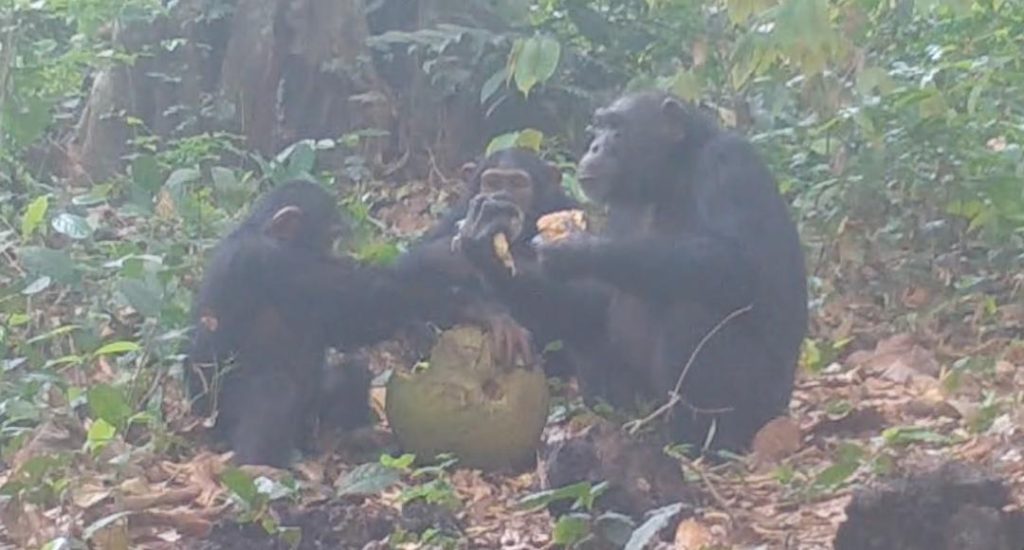
Wild Chimpanzees Filmed Eating and Sharing Alcoholic Fruit for the First Time
In a groundbreaking discovery, scientists have captured wild chimpanzees eating and sharing an alcoholic fruit for the first time. Led by researchers from the University of Exeter in the UK, a team of scientists used motion-activated cameras to film chimpanzees consuming fermented African breadfruit in Guinea-Bissau’s Cantanhez national park.
The study, which was published in the journal PLOS ONE, reveals that the chimpanzees not only consumed the fermented fruit but also shared it among themselves on multiple occasions. This behavior is a significant finding, as it suggests that wild chimpanzees may have a more complex understanding of social behavior and cooperation than previously thought.
Fermented African breadfruit is a fruit that has been known to contain small amounts of alcohol. However, the exact amount of alcohol present in the fruit is not clear. The researchers used motion-activated cameras to capture footage of the chimpanzees consuming the fermented fruit over a period of several weeks.
The footage shows the chimpanzees eating the fruit and then sharing it among themselves. The researchers observed the chimpanzees sharing the fruit on 10 separate occasions, which suggests that this behavior is a common occurrence in the wild.
Dr. Fiona Stewart, who led the study, said in a statement, “This is the first time that we have seen chimpanzees consuming fermented fruit in the wild. It’s a fascinating discovery that sheds new light on the social behavior of these animals.”
The study also suggests that the chimpanzees may have developed a taste for the fermented fruit. The researchers observed that the chimpanzees would often return to the same location to consume the fruit, which suggests that they had developed a preference for it.
The discovery of wild chimpanzees eating and sharing fermented fruit is a significant finding that has important implications for our understanding of these animals. It suggests that wild chimpanzees may have a more complex understanding of social behavior and cooperation than previously thought.
The study also raises important questions about the impact of human activities on the behavior of wild chimpanzees. As the human population continues to expand and encroach on the habitats of wild chimpanzees, it is essential that we understand how these animals adapt to changing environments.
The researchers hope that their study will contribute to a greater understanding of the behavior of wild chimpanzees and the impact of human activities on their habitats. The study also highlights the importance of conservation efforts in protecting the habitats of wild chimpanzees.
In conclusion, the discovery of wild chimpanzees eating and sharing fermented fruit is a significant finding that has important implications for our understanding of these animals. It suggests that wild chimpanzees may have a more complex understanding of social behavior and cooperation than previously thought. The study also raises important questions about the impact of human activities on the behavior of wild chimpanzees and the importance of conservation efforts in protecting their habitats.






